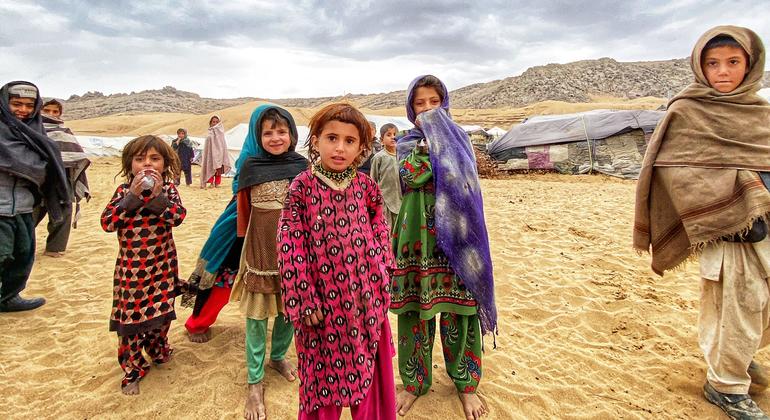The UN’s Political and Peacebuilding Affairs chief, Rosemary DiCarlo, concluded a three-day visit to Afghanistan on Thursday in which she met with senior Taliban representatives, urging them not to “erase” gains made by women and girls across the country in recent years.
“I had frank and useful exchanges about what needed to be done to bring about an Afghanistan that is inclusive, abides by its human rights obligations and is a resolute partner in suppressing terrorism,” she said.
During her discussions, the Under-Secretary-General stressed the importance of ensuring that all Afghans – men, women, youth and religious and ethnic groups – can take part in governance and public life.
“The Afghan people and the world are very interested in the steps the de facto authorities will take in this regard”, she added.
Ms. DiCarlo also highlighted “serious and understandable concern” about the situation of women and girls in the country.
“As I heard again during my visit, the women and girls of Afghanistan want to be able to go to school, work and take part in public life, free of discrimination”, she recalled. “The progress that was made in this area must not be erased.”
Continued support
In the capital Kabul from 7 to 9 December, Ms. DiCarlo met a wide range of Taliban representatives, political figures, women leaders, members of civil society and the diplomatic community.
“The UN has been in Afghanistan since 1949 and, as demonstrated during the recent crisis, we do not intend to abandon the Afghan people”, Ms. DiCarlo said.
She reiterated that the UN remains committed to the people of Afghanistan and will continue to support their efforts to build an inclusive, just and peaceful society.
Humanitarian situation
The Under-Secretary-General also discussed the country’s humanitarian situation, which has significantly deteriorated in the last year.
According to the World Food Programme (WFP), some 23 million Afghans require urgent food assistance, a figure never seen before. This includes more than three million children who are at risk of severe hunger and the life-threatening consequences of malnutrition.
In response, the United Nations has scaled up its aid, providing millions of Afghans with food, healthcare and nutritional support.
The problem has been compounded by the liquidity crisis and decrease in delivery of basic services that emerged following the Taliban takeover.
Ms. DiCarlo said that international financial institutions are continuing to work with the international community to alleviate the liquidity situation and prevent a total economic and social breakdown.
Ms. DiCarlo concluded commending the work of the UN Assistance Mission in Afghanistan (UNAMA) and other UN staff.
Humanitarian requirement should triple
In the three-month period of September through November, humanitarian partners have reached eight million Afghans with food assistance, informed the Spokesperson for the Secretary-General this Thursday.
Among them, there was 150,000 people who received relief items and 130,000 children with community-based education activities.
In the same period, more than 1.1 million people have also received primary and secondary health-care services and more than 200,000 children were treated for acute malnutrition.
In addition, 45,000 people received protection assistance, including cash, and 488,000 people received water, sanitation and hygiene assistance.
Currently, the Afghan Flash Appeal is more than 100 per cent funded. The Humanitarian Response Plan is 84 per cent funded.
With the worsening situation in the country, the Spokesperson said, the humanitarian requirement is expected to triple in 2022.

© UNHCR/Dustin Okazaki
In Afghanistan, 23 million million people are facing extreme levels of hunger while 3.5 million have been displaced by conflict.
